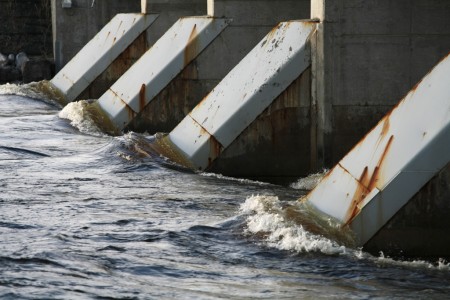Obama’s decision to extend California-style fuel efficiency standards across the US is a very welcome one, not least because it seems likely that Canada’s government will copy them. The US rules take effect in 2012 and create a federal fuel efficiency standard. The aim is to push the efficiency of the US car and light truck fleet to 35.5 miles per gallon (6.63 L/100km) by 2016: 40% better than now. Such a move is long overdue, given the poor efficiency of the US vehicle fleet, the huge amounts of oil imported by the United States in order to keep them running, climate change concerns, and reasonable doubts about the availability of low-cost hydrocarbons in the near to medium future.
While the new standards are a marked improvement, it is worth thinking about them in context. They will not bring the US up to speed with Australia, China, the European Union, or Japan. Indeed, even in 2020, the planned American standards lag behind where the EU and Japan were in 2002. Given the degree to which North American taxpayers now own the big car companies, it may well have been possible to demand more progressive action from them.
Toughening standards may seem even more prescient if the end of the economic slump brings back high oil prices, as some are predicting. As reported in The Economist, the Saudi oil minister is concerned that a sharp increase in oil prices could slow or stop an economic recovery, while attendees at an OPEC summit apparently expect oil to return to $150-per-barrel territory:
The explanation is simple. Oilmen are worried because they believe that many of the factors behind the record-breaking ascent last year remain in place. Much of the world’s “easy” oil has already been extracted, or is in the hands of nationalist governments that will not allow foreigners to exploit it. That leaves firms to hunt for new reserves in ever more inhospitable and inaccessible places, such as the deep waters off Africa or the frozen oceans of the Arctic. Such fields take a long time and a lot of expensive technology to develop. Worse, new discoveries tend to be smaller than in the past and to run dry faster.
More efficient vehicles make sense as a near-term mechanism for dealing with the linked problems of climate change and energy security, but they are only an incremental step. Rather than being able to rely on increasing the efficiency of an unsustainable practice, we need to alter the basis on which that practice occurs, so as to make it both efficient and sustainable. By all means, we need to increase the efficiency with which vehicles of all kinds transport people and freight, but we must remember that we will only have attained our basic goals when those efficient vehicles operate using zero-carbon, sustainable electricity or sustainably grown, carbon-neutral biofuels as their fuel sources.





